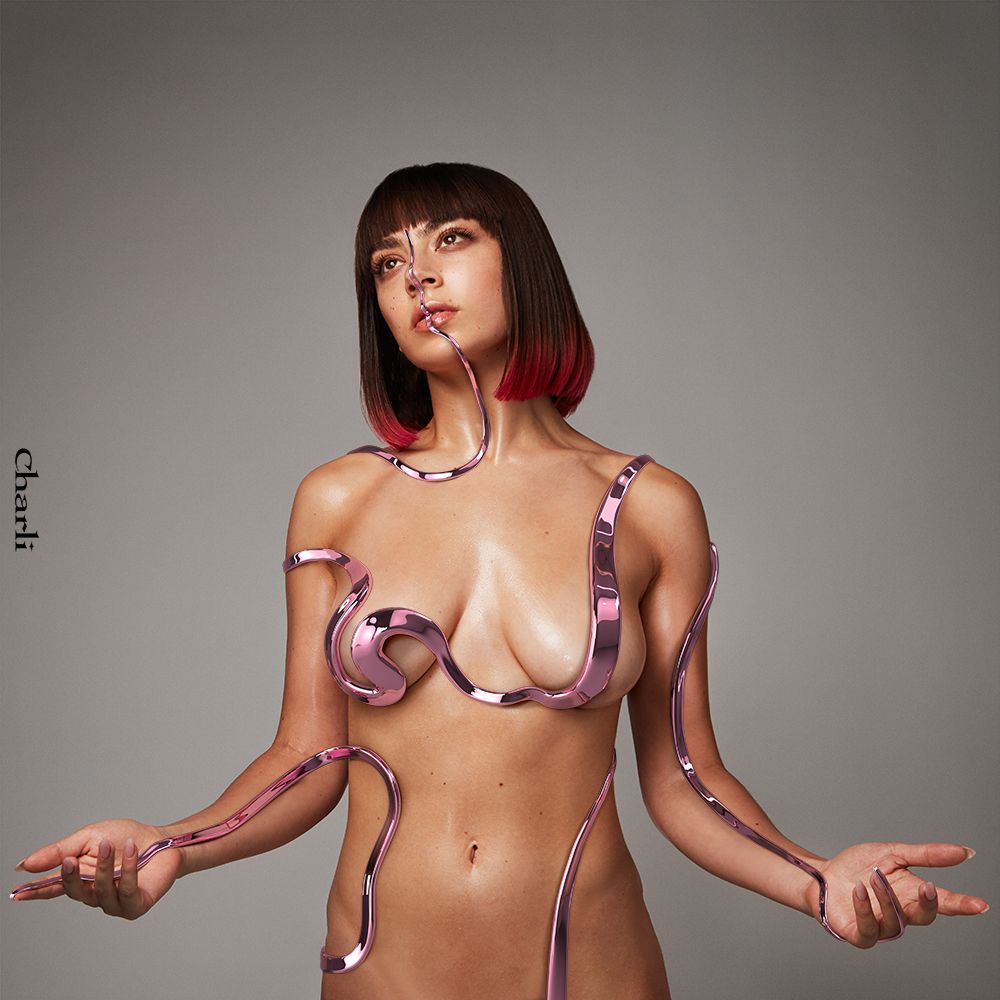Charli XCX’s ‘Charli’ is a bold synthesis of her experimental vision

Charli XCX
Charli
Atlantic Records · September 13, 2019
Charli XCX upended the foundation of her artistry three years ago by partnering with the enigmatic SOPHIE to create the Vroom Vroom EP, a whiplash-inducing collection released to mixed reception because people simply didn’t realize the greatness of what they were listening to. Charli was undeterred; it served as the blueprint for her future works, and began her partnership with artists, producers, and affiliates of PC Music, a U.K.-based record label that seeks to create glitchy, noisy, and sugary sweet pop music as both a love letter to and repudiation of contemporary pop distilled to its purest components. Charli is her long-awaited third album and is a bold synthesis of her experimental vision while sacrificing little in the way of mainstream appeal.
Charli’s third album took many forms over the years, beleaguered by pressure from her label, Atlantic Records, and a deluge of leaks of songs intended for it. Perhaps mirroring this behavior in a controlled manner, she drip-fed fans a collection of tracks last summer which were certainly infectious bops, even if they didn’t exactly reach the highs present on 2017’s Number 1 Angel and Pop 2. This year’s “Gone,” featuring Christine and the Queens, bucked the trend with the movingly sparse production of A.G. Cook that had the morose pair contemplating why they even bother with public discomfort. It was at precisely this point that I stopped listening to the singles, in equal parts because I wanted to keep the majority of the album a surprise and that I had complete confidence in Charli after listening to it.
Fortunately, this trust was not misplaced, and the album continually surprised and pleased me at its various turns. “Next Level Charli” is a treadmill Charli pushes forward on before crescendoing amidst familiar tags “XCX” and “It’s Charli, baby,” just in case you didn’t realize who you were listening to. The hangover following this track is nicely captured across the next two songs “Gone” and “Cross You Out” with Sky Ferreira, where on the latter the two convince themselves to leave behind the toxic people in their lives, though this track’s equally-sparse production isn’t as well-matched to the song as it is to “Gone.”
Things quickly pick back up with “Click,” an intricately produced absolute banger featuring two previous collaborators of Charli’s: the German pop sensation Kim Petras and Estonian rapper Tommy Cash. Long menacing notes precede Charli’s intro, dripping with swagger, as does her confident verse where she boasts “I’m so 2020, when I wanna go pop/I’ll pop, I got them hits,” indicating her futuristic sound takes precedence over a desire to achieve mainstream appeal. The song’s production gets progressively more industrial as the song continues, before a chaotic outro orchestrated by Dylan Brady of 100 gecs blows the top off the song (and a few speakers in the process).
“Shake It” and “2099” are the other two songs on the album that truly share the same energy as “Click.” The former is an expansive posse cut hosted by Charli on the chorus that features four explosive verses: Big Freedia busts onto the scene and scolds you for “drinking water when you should be drinking alcohol,” and Pabllo Vittar concludes the song with a Brazilian Portuguese verse over thumping drums. “2099,” meanwhile, is somewhat of a misnomer. It virtually jerks the listener into the next millennium with a chorus that hits similarly to how lethargic, overconfident, and blissful, riding on a wave of futuristic and glitchy pop perfection.
Charli’s musical heart may lie in these subversive anthems, but she is adept at showcasing her songwriting versatility on the handful of solo songs on this album. Syrupy synths build “Thoughts,” an almost stream-of-consciousness style song where Charli reflects on the vices and relationships that she consumes and that consume her in her fast-paced lifestyle. On the back-to-back “I Don’t Wanna Know” and “Official,” she alternates between hurt and, on the latter, hopeful of reconciliation with her former lover. The cold “I Don’t Wanna Know” also contrasts heavily with the HAIM-assisted “Warm,” a track with almost a bit of dancehall flavor where Charli implores, “You gotta tell me the reason/Why we can’t fall in love.”“Silver Cross” is an uplifting anthem that, despite ostensibly being about crying all night, has a mainstream appeal that’s vexingly easy to party to.
“Blame It On Your Love,” however, is the weakest song on the album. There exists much confusion between it and “Track 10,” the booming, avant-garde, showstopping and wig-snatching closing track of Pop 2, because “Blame” is the original song to which “10” is the A.G. Cook remix, even though “10” came out two years prior to “Blame.” It’s not her fault, but the Charli version of the song pales in comparison to “Track 10” and is brought down further by a frankly bad Lizzo feature that is over before you know it and clearly written when she and her team thought “Juice” would be her breakout single instead of “Truth Hurts.” Carly Rae Jepsen, herself known for light-hearted bops, could have fit the track much better by dropping a verse a la “Boy Problems” from her sophomore Emotion, and would be a highly anticipated second collaboration between the two.
In the opener, Charli XCX commands the listener to “turn the volume up in your Prius,” on the surface a cheeky aside to the economic status of Toyota’s hybrid, but actually meaningfully acknowledges the approach that she takes with her music. The average person doesn’t have a Wraith, also referenced in the song, or a “White Mercedes,” but they do have a bedroom and a set of speakers with which to blast Charli’s music. Charli is for the people: her people, her fans that loyally support her unique style of pop, and is a powerful punctuation on her previous works that is hopefully just the beginning of a blossoming new creative chapter.